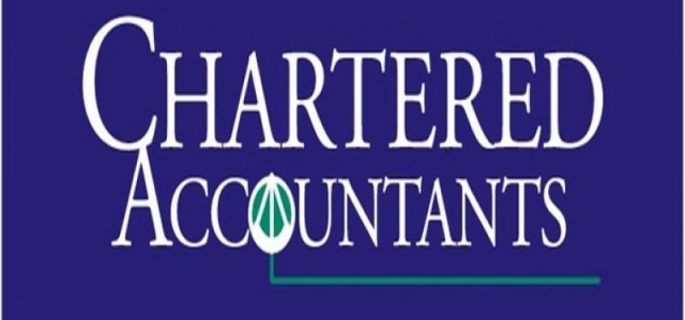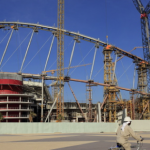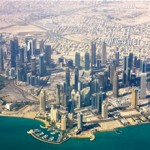Rising demand for chartered accountants in Middle East

As business models become more complex and sophisticated, every enterprise needs qualified professionals to help them invest, develop and grow prudently. Since 1961, The Institute of Chartered Accountants of Pakistan (ICAP) has been playing a pivotal role in meeting the rising demand for qualified accountants and promoting this profession.
As of July 2016, more than 8,000 members of ICAP were working in and outside Pakistan — a significant portion of them employed in the Middle East. With the growing economy, demand for skilled professionals, especially qualified accountants, is rising in the Middle East, US and Canada. Various locations in the region have become recruitment hotspots and attract the top international talent.
Qatar and UAE, in particular, have experienced huge economic growth in recent years, despite the 2009 Dubai Financial Crisis and uncertainty in oil prices. Dubai is expected to host the World Expo in 2020, while FIFA World Cup will be held in Qatar in 2022. Many companies will move to Qatar against the backdrop of this economic growth, thereby creating tremendous job opportunities for finance professionals.
With Middle East becoming the spotlight of economic happenings and job possibilities, the worth of professionals in this region is also increasing with high remuneration packages. Accountants in UAE are among the highest paid professionals. In September 2015, Gulf News reported the results of a survey conducted by the Institute of Management Accountants (IMA) USA. According to the results, qualified accountants in UAE are “among the highest paid in the Middle East region, with annual salary levels averaging at $62,000 (Dh227,719) or roughly Dh19,000 a month. “The average annual total compensation for these finance professionals (in UAE) is even higher, at $72,000 (Dh264,448) or a little over Dh22,000 per month.”
UAE aims to develop Dubai as the financial capital of the world. As a result, many global financial institutions are opening their regional offices there. Salaries of accounting and finance professionals increased between 1 to 4 per cent in 2016. Post 2009 Dubai Financial Crisis, UAE announced fifteen new projects worth more than $l87 million. These projects are a part of the municipality’s 2013 to 2015 strategic plan of Dubai.
Under the Saudi Vision 2030, Kingdom of Saudi Arabia plans to reduce dependence on oil. Plans comprise of 80 projects incurring heavy investment.
With new investments and establishment of more multinational companies in the Middle East, the demand for skilled labour is also expected to increase. Since the global companies generally follow IFRS and best industry practices of financial reporting, many new job opportunities for qualified accountants are expected to emerge. Professionals from across the globe will compete for these excellent opportunities. Middle East jobs do offer lucrative remuneration and benefits packages, while promising a great work-life balance along with ongoing training and development programmes. Absence of income tax in many Middle Eastern countries is also an incentive for workers.
Career progression in these regions is also promising. In an interview given to Gulf News in September 2015, Hanady Khalife, IMA Director of Operations for the Middle East and Africa region, stated, “While in the mature markets [like the] United States, Western Europe and Japan, it may take 10 to 15 years of experience to reach a senior management position, and two plus years to become a chief financial officer or have a board position, in the GCC, there is a unique opportunity for finance professionals, especially local nationals at this moment.”
“Given the competency gap in the industry — the shortage of qualified professionals — those who pursue advanced certifications can set themselves on a faster career path and reach a CFO or board level position in just a few years.”
The academic programmes and professional courses being offered at ICAP involve a blend of theoretical education and practical training of 3.5 years that equips every student with the knowledge, ability, skills and other qualities required of a professional accountant. ICAP has also created strong alliances with a number of international accounting bodies such as: The International Federation of Accountants (IFAC), International Accounting Standards Board (IASB), Confederation of Asian and Pacific Accountants (CAPA) and South Asian Federation of Accountants (SAFA). ICAP was awarded the ‘Associate Membership’ by Chartered Accountants Worldwide (CAW), making it the second professional body to be admitted to this global organisation, since its launch in February 2013.
However, international applicants seeking employment in the Middle Eastern financial industry must bear a few facts in mind. The cost of living in the region may be too high, despite the tax incentives. Companies may prefer hiring locals or expats who have at least 4 to 5 years’ experience of working in the Middle East. Further, the professionals need to make themselves known in the relevant sectors and the finance and banking community. Chartered Accountants interested in working in the Middle East must first visit the region to understand the dynamics and trends and meet the recruitment consultants. This definitely is an opportunity worth exploring!
Source: TheNation





























